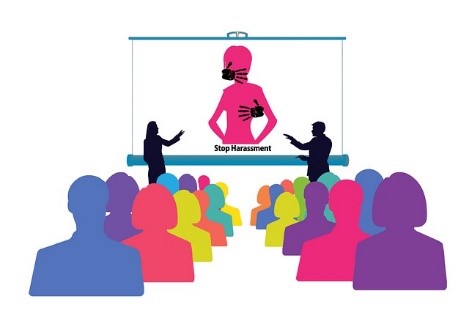
Even though the federal and state laws in the United States forbid sexual harassment in the workplace, many male and female employees still report experiencing this type of harassment in their workplace. If you find yourself in a similar situation, your employer has the legal obligation to stop the harassment. If they do not, it is essential that you contact sexual harassment in the workplace lawyer, use the existing laws, and take appropriate legal action to end the harassment.
Putting up with the offensive conduct is not advisable as the hostile intimidating environment it creates can negatively impact your morale, productivity, and, subsequently, even your career.
What is sexual harassment?
Sexual harassment is any sexually offensive, objectionable, and unwanted behavior that makes you feel harassed, threatened or intimidated. From a legal point of view, such conduct can sometimes be hard to prove. The perpetrators might claim that you miscontrued their intentions and that they were merely being friendly. However, if they have continued with their unwanted friendliness despite being repeatedly told to stop, the chances are strong that their behavior constitutes sexual harassment. It might be best to consult experienced sexual harassment in the workplace lawyer and find out about your legal options.
If you have experienced any of the following unpleasant behaviors from your employer or co-workers, you are looking at clear-cut sexual harassment:
• The subject you to lewd, suggestive, creepy comments, compliments, and jokes.
• They send you pornographic messages, images, or videos.
• They make persistent requests for dates and refuse to accept that you are not interested.
• They make aggressive advances and repeatedly get into your physical space.
• The subject you to unwanted touches, pats, embraces, grabs, or kisses.
• They demand sexual favors from you for a work assignment, promotion, or salary raise.
• They spread offensive and damaging rumors about your character and behavior.
• They photograph you without your knowledge or permission.
• They stare at you and your private parts obscenely.
• They sabotage your work because you turned them down.
• They threaten to harm you physically unless you agree to their sexual demands.
What to do when you have been sexually harassed at work?
You can do the following if you have been sexually harassed at work:
1. Make sure that you are not misconstruing the behavior, that it is indeed offensive, unpleasant, and intimidating and makes you feel unsafe in your workplace.
2. Maintain a detailed record of the harassment. For instance, when it started, what the person said or did, when, where, and who witnessed it.
3. Gather evidence of the harassment, such as offensive notes, emails, text messages, chats, photographs, images, and videos the perpetrator sent you.
4. Record yourself informing the perpetrator clearly in the presence of witnesses that you find their behavior objectionable and want them to stop it and stay away from you. Many harassers will back off when you confront them directly and let them know they cannot cross your boundaries. If they do not, you have proof that you asked them to stop, and they cannot claim you misconstrued their behavior.
5. If the harassment continues, inform your manager and file a formal complaint with the HR department. Depending on your company’s policy, you may need to do this within 180 or 300 days of experiencing the harassment. As per the law, employers with 15 or more employees have the legal obligation to investigate complaints of sexual harassment, check the evidence, and take appropriate action against the perpetrators. They may issue them warnings, transfer them, or fire them.
6. If the employer does not take appropriate action and the harassment continues, file a complaint with the Equal Employment Opportunity Commission (EEOC). They will investigate the matter and, based on the evidence, ask your employer to compensate you.
7. If EEOC fails to get a satisfactory resolution, consult sexual harassment in the workplace lawyer. The lawyer may first approach your employer and try to get an out-of-court settlement. If that does not work, he or she can file a lawsuit on your behalf against your employer for subjecting you to a hostile and unsafe work environment, represent you at the trial, and get you justice.

 May 20th, 2022
May 20th, 2022  Samuel
Samuel  Posted in
Posted in